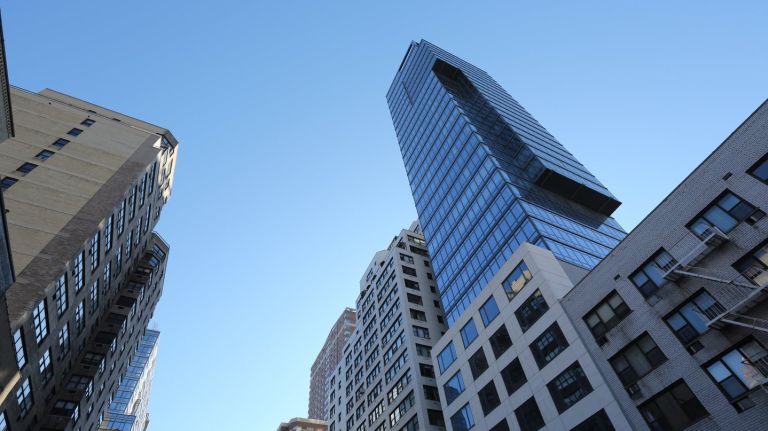 Median recorded sales price: $1,145,000
Median recorded sales price: $1,145,000
Number of sales units on the market: 229
Median rent price: $3,350
Number of rentals on the market: 263
(Source: StreetEasy)” class=”wp-image-111660418″/> Median recorded sales price: $1,145,000
Number of sales units on the market: 229
Median rent price: $3,350
Number of rentals on the market: 263
(Source: StreetEasy) Photo Credit: Getty Images/Getty Images
It’s not easy to find real estate deals in NYC.
That’s true for your average apartment-seeker looking for an $800-a-month one-bedroom near an express stop, but it’s also true for real estate developers. The city isn’t exactly swimming in open land, or even cheap land to turn into something profitable. What’s a developer to do?
Parcels of land once owned by the city often carry deed restrictions, meaning they are protected for particular use — by non-profits that provide some benefit to the community, for example. Seems reasonable — the land used to be for public benefit, why not get something out of it even if the city gives it up?
These deed restrictions are rarely lifted. But they can be, if you work the right levers of government — and when they’re worked, somebody stands to make a lot of money.
You might think that when protected land is sold to a private company there would be plenty of transparency: notice to the community and local elected officials, well-advertised hearings and checks and balances.
You’d be wrong.
How do you get a deed restriction lifted?
That’s what happened earlier this year at Rivington House on the Lower East Side.
A mostly-empty nursing home protected by a deed restriction was bought by a nursing home operator who convinced the city to lift the restriction in exchange for a $16 million fee. Once that happened, the nursing home operators flipped the property to a real estate developer and cleared $72 million. Hello luxury condos.
The city claims that it was misled, and the mayor (whose main focus this year has been on curbing gentrification) says he was unaware of the Rivington House situation. But a de Blasio affiliated fund-raiser worked for the companies in question. The Rivington House sale is under multiple investigations.
How did the deed get lifted? The decision was made by the Department of Citywide Administrative Services, an obscure agency responsible for managing city property.
DCAS was back in the headlines on Friday, when The New York Times reported that a vacant lot on St. Nicholas Avenue owned by the nonprofit Dance Theater of Harlem had been sold to BRP Companies after a deed restriction was lifted.
In exchange for a fee, DCAS removed the requirement that a nonprofit cultural organization to use the site, making the land even more valuable.
The community and elected officials say they were not aware of the decision. Once again, a campaign donation was involved: the developers forwarded a contribution to the Putnam County Democratic Committee, who supported state senate Democrats. De Blasio made an effort to get more Democrats elected to the state senate, which is now under GOP control. The mayor’s campaign is now under investigation by Manhattan District Attorney Cy Vance and U.S. Attorney Preet Bharara for potentially violating campaign finance laws involving the solicitation of contributions like this one.
Rules of the game
It’s unclear at this point if the city got anything in return for the sale of publicly protected land to a private developer beyond the fee: potentially a handful of affordable housing units, but also potentially not.
The city’s only comment on the issue comes from the DCAS commissioner: “The City is in the process of reviewing its policy on the lifting of deed restrictions.”
Calls to the developer were not returned.
Testifying at City Council budget hearings on Friday, DCAS Commissioner Lisette Camillo said that 13 or 14 deed restriction modifications are in the pipeline but have been put on hold after the Rivington House story came out. The Harlem one had already been approved.
DCAS is in the process of revamping the review process to include more public review. Right now, the main notification is a brief appearance in the City Record, which you can view here for some light reading.
A fix is necessary to stop those looking to make a killing on land, that most precious NYC quantity. Besides profits there are a few other things we need in NYC — truly plentiful and affordable housing, schools and homeless shelters, as Councilmember Ben Kallos noted at Friday’s hearing.
It would be a shame for none of those needs to be addressed on plots that were intended to be preserved.
But those are the current rules of the game.
This is amExpress, the conversation starter for New Yorkers. Subscribe at amny.com/amexpress.

































